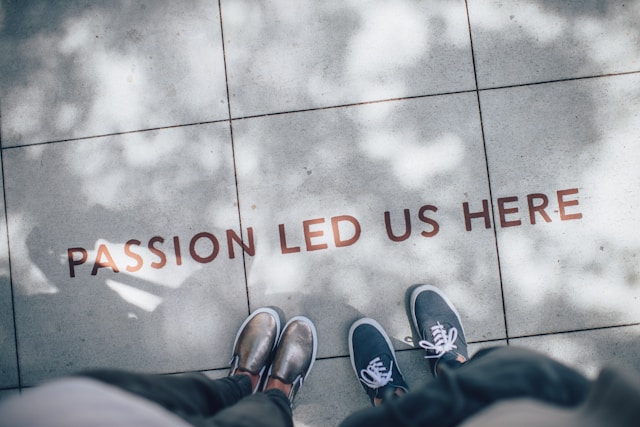Post-Traumatic Stress Disorder (PTSD) can profoundly affect every aspect of a person’s life, in this blog we will discuss the effect of some PTSD symptoms on relationships. The symptoms of hyperarousal, distorted cognitions, and emotional numbing1 often create barriers that can make connecting with others difficult. However, it’s essential to recognize that individuals with PTSD can and do love. Understanding these challenges and exploring therapeutic avenues can foster healthier relationships.
The Challenges of Hyperarousal
One of the most prominent symptoms of PTSD is hyperarousal. Hyperarousal is the body’s way of preparing for threat. It includes increased, heart rate, sweating, respiratory rate, blood pressure and sensory alertness. In someone with PTSD this leads to heightened alertness, irritability, and difficulty relaxing. For someone living with PTSD, the world can feel like a minefield. A place where one is attempting to anticipate every possible danger.
The lack of connection felt by people with a PTSD sufferer may be a function of the hyper aroused state. To connect with others, we need to feel a level calm that is the opposite of being hyper aroused.
It is not uncommon for a PTSD sufferer to be hyper aroused to emotional states. Emotions feel dangerous. For example, the vulnerability associated with intimacy may also be a trigger to switch on hyperarousal. Getting closer to someone becomes a frightening experience, even though it might be something you also want.
Other factors associated with hyperarousal and an apparent inability to love may be that the constant state of alertness and irritability could be leading to misunderstandings in relationships, where loved ones may interpret a partner’s irritability as personal.
Distorted Cognitions
Persistent negative beliefs about oneself, others, and the world can also take a toll on relationships. Individuals with PTSD may internalize feelings of shame or guilt, leading them to believe they are unworthy of love or incapable of forming healthy connections. These beliefs can create a barrier, causing them to withdraw or push loved ones away in fear of being hurt or disappointing them.
Similarly, traumatic experiences often lead to distorted thoughts about others. Trauma sufferers can struggle to trust others, fearing that they will be hurt. This distrust can making it challenging for someone with PTSD to feel safe and connected.
Emotional Numbing
Another symptom of PTSD is a persistent negative emotional state and feelings of detachment from loved ones. Together this can be thought of as emotional numbing. Clearly this can hinder relationship dynamics. Those with PTSD might find it difficult to engage in activities they once loved or feel emotionally present with others. The detachment experience my also include estrangement from partners. This can be incredibly confusing for loved ones, who may feel shut out or helpless to support their partner. It is often confusing for the person suffering PTSD who knows they love their partner but has difficulty feeling it.
The Capacity to Love
Despite the challenges of PTSD, it’s crucial to highlight that individuals with PTSD have an incredible capacity to love. Many have had experiences that mean they have deep empathy and understanding. The struggle with PTSD lies in expressing that love effectively, which can be a significant hurdle due to the symptoms mentioned above.
The Role of Therapy
Therapy can be a transformative tool for individuals with PTSD, helping them navigate their symptoms and develop healthier relational patterns. Approaches such as Cognitive Processing Therapy can assist in reshaping negative beliefs and distorted cognitions. This therapy for PTSD focuses on both traumatic experiences and life areas associated with connection with self and other. These include safety, trust, power and control, esteem and intimacy.
Through therapy, individuals can learn to articulate their feelings, set boundaries, and communicate their needs more effectively. They can also work on gradually rebuilding trust, both in themselves and in others. With the right support, many people with PTSD can cultivate meaningful relationships, leading to fulfilling connections.
Building Stronger Connections
For partners, friends, and family members of those with PTSD, understanding the condition and its impact on relationships is essential. Empathy, and open communication can go a long way in fostering a supportive environment. Encouraging loved ones to seek therapy and being there for them during their journey can help bridge the gap that PTSD creates.
Conclusion
While PTSD presents numerous challenges in relationships, it doesn’t mean that someone with PTSD cannot love. With the right tools and support, individuals with PTSD can express their love more fully, therapy is one way to gain those tools and support.
If you’re struggling with PTSD or a mental health issue, don’t hesitate to seek help. Book an appointment with our experienced psychologists at the Centre for Clinical Psychology in Melbourne by calling 03 9077 0122. We’re here to support you on your journey to better mental health and to building connections in your life.
References
1.Trauma- and Stressor-Related Disorders. (2022). In Diagnostic and Statistical Manual of Mental Disorders (1–0). American Psychiatric Association Publishing. https://doi.org/10.1176/appi.books.9780890425787.x07_Trauma_and_Stressor_Related_Disorders



